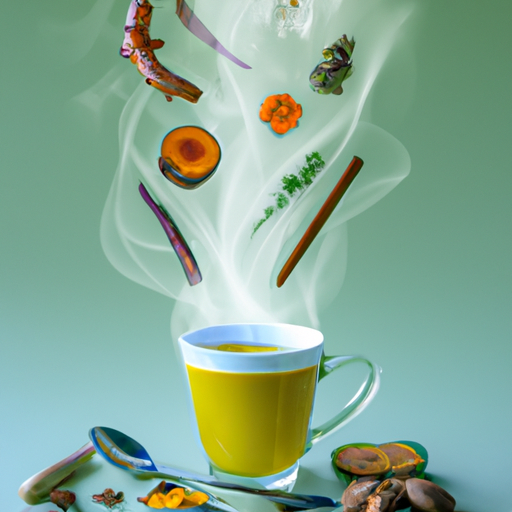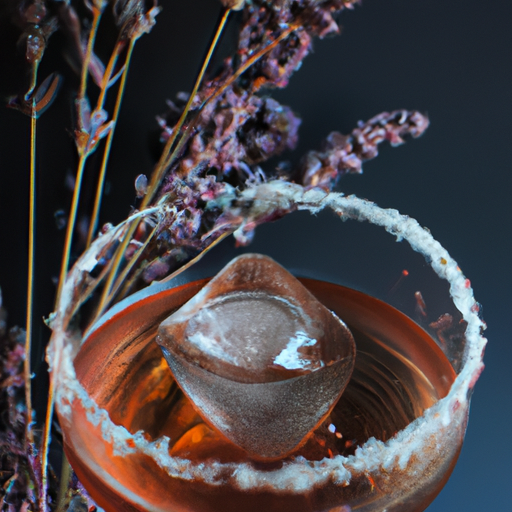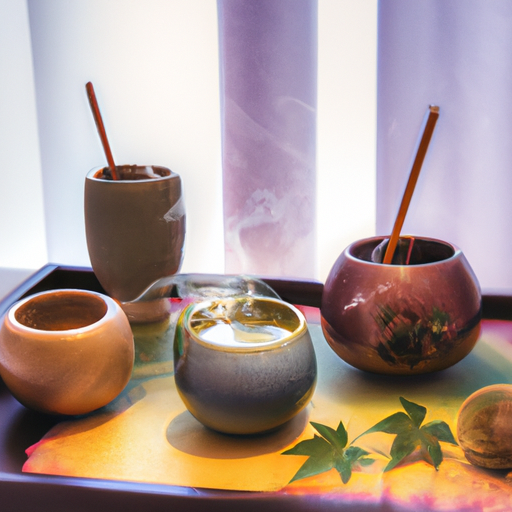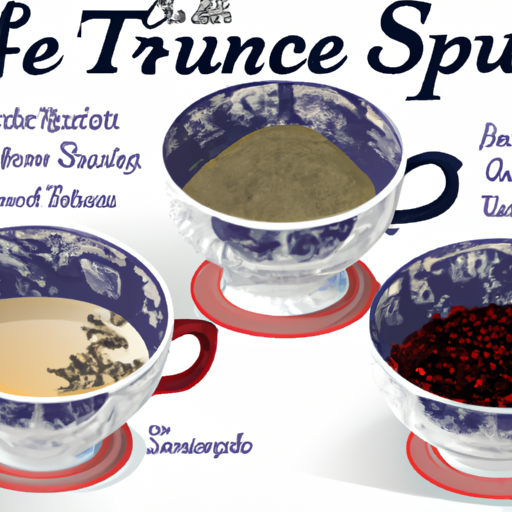Are you tired of constantly battling the cold and flu during the winter season?
Well, I have some good news for you. There is a natural and delicious way to boost your immunity and fight off those pesky viruses – tea! That’s right, the humble cup of tea can be your secret weapon in staying healthy and preventing those dreaded winter illnesses.
With a wide variety of teas available, each with their own unique benefits, you can find the perfect brew to suit your needs. From soothing a sore throat to treating respiratory infections and relieving flu symptoms, tea has got you covered.
In this article, we will explore the power of tea in boosting your immunity and fighting off the cold and flu. So grab your favorite mug and let’s dive into the wonderful world of teas that will keep you healthy all winter long.
Key Takeaways
- Herbal and real teas may offer benefits in dealing with the common cold or flu.
- Ginger tea, when combined with honey and lemon, can relieve symptoms and provide protection against flu and cold viruses.
- Green tea, rich in catechins, may boost the immune system and prevent flu.
- Elderberry tea can relieve symptoms of flu and cold and may reduce the duration of symptoms.
Tea for Sore Throat
When I have a sore throat, I find that drinking Iceland moss tea is effective in soothing the discomfort. Iceland moss tea is one of the best herbal teas for soothing a sore throat. It’s known for its natural remedies for sore throat relief. The tea contains mucilage, a substance that forms a protective coating in the throat, providing relief from irritation and inflammation. This can help alleviate the pain and scratchiness associated with a sore throat.
Additionally, Iceland moss tea has antimicrobial properties that can help fight off any potential infection causing the sore throat. It’s a gentle and natural way to find relief without resorting to over-the-counter medications.
So, the next time you have a sore throat, try a cup of Iceland moss tea for natural and soothing relief.
Tea for Respiratory Infections
I find that herbal teas can be beneficial for respiratory infections. When it comes to bronchitis, thyme tea is an excellent choice. Thyme contains compounds that have antimicrobial properties, which can help relieve the symptoms of bronchitis. Additionally, it has expectorant properties that can help loosen mucus and alleviate coughing. For sinus infections, eucalyptus tea is a great option. Eucalyptus has both antimicrobial and anti-inflammatory properties, making it effective in reducing sinus inflammation and clearing congestion. It can also soothe irritated nasal passages and provide relief from sinus pain. Incorporating these teas into your routine can help support your respiratory health and aid in the recovery from respiratory infections. Remember to consult with a healthcare professional before using herbal teas as a treatment for respiratory conditions.
| Tea for Bronchitis | Tea for Sinus Infections |
|---|---|
| Thyme tea | Eucalyptus tea |
| Antimicrobial | Antimicrobial |
| Expectorant | Anti-inflammatory |
| Loosens mucus | Clears congestion |
| Relieves coughing | Soothes nasal passages |
Tea for Flu Symptoms
Symbolically representing the healing power of nature, certain herbal infusions can provide relief from the symptoms of influenza. When dealing with a fever, drinking hot tea can help alleviate discomfort.
Herbal teas like chamomile and ginger can be particularly beneficial. Chamomile tea has antibacterial properties and may help treat infections related to the common cold, including soothing a cough.
Ginger tea, when combined with honey and lemon, can relieve symptoms and provide protection against flu and cold viruses. Additionally, ginger has been shown to have anti-inflammatory properties that can help reduce fever.
So, next time you’re feeling under the weather with a fever or cough, reach for a cup of chamomile or ginger tea to help ease your symptoms and promote healing.
Frequently Asked Questions
Can drinking tea alone cure a cold or the flu?
Drinking tea alone cannot cure a cold or the flu. However, it can be an effective alternative remedy for relieving symptoms and supporting the immune system. It’s important to seek professional medical advice for serious conditions.
Are there any teas that should be avoided when trying to boost immunity?
When trying to boost immunity, it is best to avoid herbal blends with added sugars and black tea with high caffeine content. These teas may not provide the same immune-boosting benefits as other options.
How often should I drink tea to see the benefits in fighting cold and flu?
To reap the maximum immune-boosting benefits, I recommend incorporating tea into your daily routine. Drink it throughout the day, varying the types for a diverse range of antioxidants. The temperature of the tea doesn’t affect its effectiveness in fighting cold and flu.
Can I mix different types of teas together for added benefits?
Mixing teas for enhanced benefits is a great way to boost immune support. Some of the best tea combinations include ginger and lemon for flu protection, chamomile and peppermint for cough relief, and green tea with elderberry for overall immune support.
Are there any teas that can interact with certain medications used to treat cold and flu symptoms?
When it comes to combining teas with medications for cold and flu symptoms, it’s important to be cautious. Some teas can interact with certain medications, potentially leading to unwanted side effects. It’s best to consult with a healthcare professional to ensure safety.
Conclusion
In conclusion, incorporating the right teas into your daily routine can be a powerful tool in boosting your immunity and fighting cold and flu symptoms.
From soothing sore throats to treating respiratory infections and relieving flu symptoms, teas like Iceland moss, chamomile, ginger, peppermint, rooibos, echinacea, licorice root, guava, green tea, and elderberry offer a range of benefits.
While it’s important to consult with medical professionals for serious conditions, these teas can provide a natural and effective way to support your immune system. So grab a cup and let the healing power of tea work its magic!










